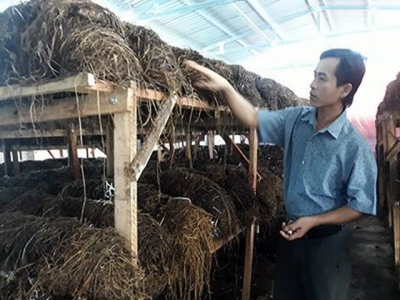What should be done to help Vietnamese businesses grow?

Chair of the Vietnam Chamber of Commerce and Industry (VCCI) Vu Tien Loc, when talking about policies to support businesses recently, mentioned the ‘loneliness’ of the majority of businesses, especially small, medium, and micro sized companies, which account for 95 percent of total Vietnamese enterprises.
The health of businesses reflects the ‘health’ of the national economy.
Loc believes that it is necessary to put business households under the control of the law. If business households are not covered by the Enterprise Law, Vietnam will lag far behind regional countries in number of businesses.
What should be done to help Vietnamese businesses grow?
In addition, if business households are covered by law, this would improve transparency, reduce harassment and administrative pressure, thus allowing businesses to grow.
Vu Duc Quyet, former director of the Bac Ninh Industry and Trade Department, said
However, the growth of businesses needs to be reflected in many aspects, including the scale, value, product scale and tax payment capability. In other words, the growth of businesses must depend on "health", financial capacity, corporate governance and other things, not just rely on the number of enterprises.
According to Quyet, many of the 5 million business households have large operation scale, high income and good management skills. They should be encouraged to become enterprises.
If business households are forced to become enterprises, they will bear pressure because of the strict requirements on accountancy regime, books, invoices and vouchers. If so, they may ‘go underground’, try to evade tax, and escape the state’s control.
Meanwhile, other business households are small and do seasonal business.
If they are forced to become enterprises, they will bear pressure because of the strict requirements on accountancy regime, books, invoices and vouchers. If so, they may ‘go underground’, try to evade tax, and escape the state’s control.
Quyet believes that what the government needs to do is, on one hand, set up mechanisms to encourage business households to turn into enterprises, and on the other hand, help maintain household businesses.
"In order to have more start-up businesses, it’s necessary to nurture household businesses first," Quyet said.
An analyst shared the same view with Quyet, saying that forcing business households to become enterprises just to implement the plan to have 1 million businesses by 2020 is not a reasonable approach.
If business households do not follow economic laws in their development, they will not have enough time to accumulate resources and experience. They will not be able to grow.
The analyst went on to say that policies play an important role in the development of business households into enterprises.
It is necessary to clearly stipulate when business households have to become enterprises by setting up detailed criteria about operation scale and revenue. Detailed regulations will help prevent household businesses from evading tax and dodging the laws.
Related news
 Vietnam targets 5 billion USD from fruit, vegetable exports in 2020
Vietnam targets 5 billion USD from fruit, vegetable exports in 2020 The veggie and fruit sector aims to gross 5 billion USD from exports this year on the back of new-generation free trade agreements
 Rice cultivation no longer toiling, moiling
Rice cultivation no longer toiling, moiling Modern farmers do not have to wade in the rice fields to produce rice but use unmanned farming equipment and mechanization. Rice cultivation technology
 Vietnamese farm owners in Russia
Vietnamese farm owners in Russia A number of Vietnamese people in the Russian Federation have invested in building small farms to growfruit and vegetables to meet the demand of the Vietnamese